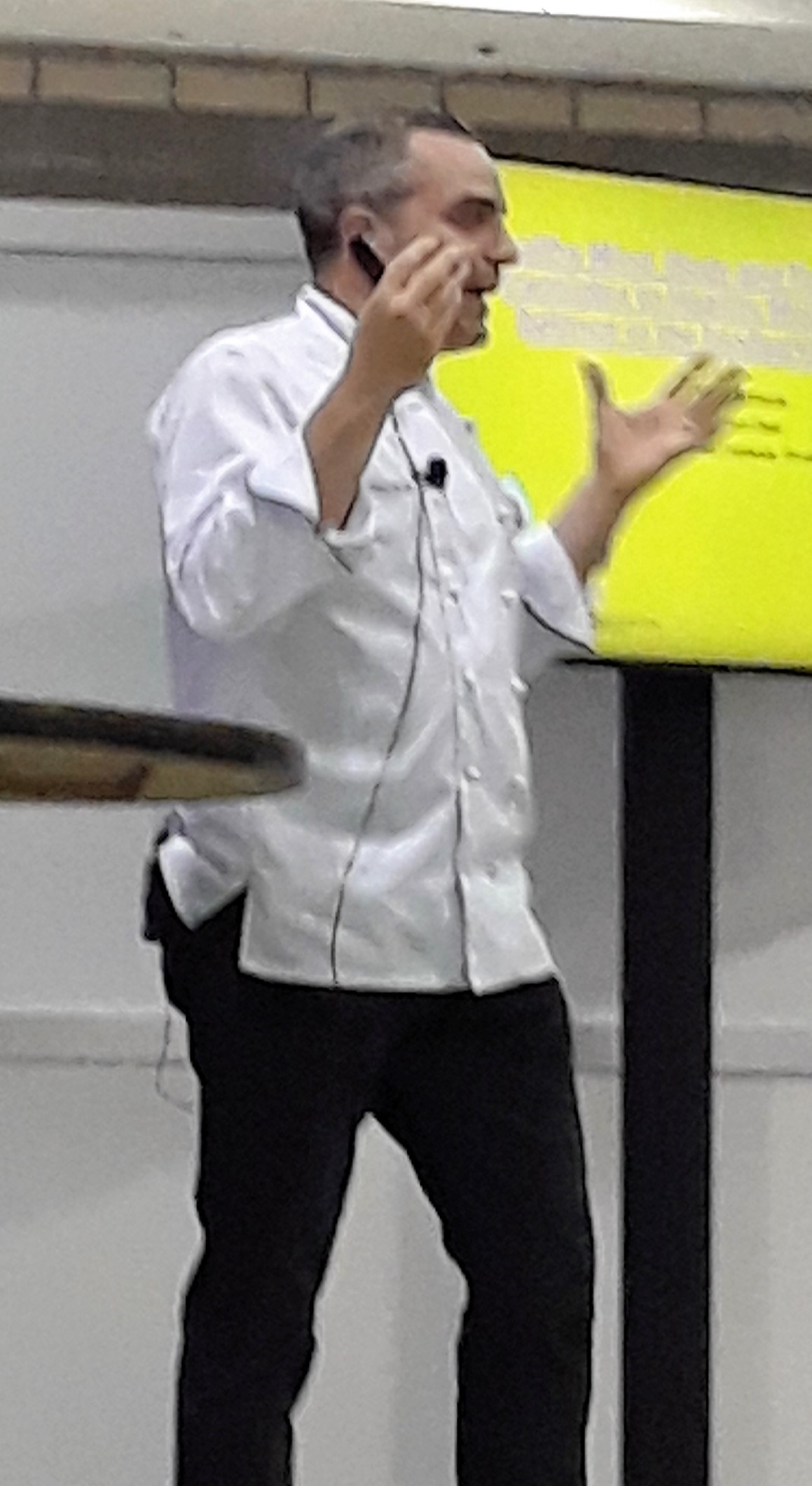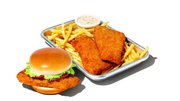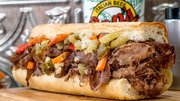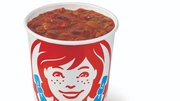Article
From turmeric to talking it out: Expert advice on restaurant worker stress reduction a year after Anthony Bourdain's death
A little more than one year after famed celebrity chef, Anthony Bourdain's death by suicide, we take a look about one culinary educator and chef recommends to reduce the level of stress for those working in all levels of the food service industry.

June 26, 2019 by S.A. Whitehead — Food Editor, Net World Media Group
Workaholism. Alcoholism. Drug abuse. Depression. Hypertension.
These are just a handful of the many signs of increasing physical, mental and even spiritual depletion across the restaurant industry. In fact, a little more than one year ago — on June 8, 2018 — one of the restaurant industry's most well-known and loved celebrity chefs, Anthony Bourdain, took his own life, after relaying many of the out-sized restaurant industry stressers in his memoir, "Kitchen Confidential."
Bourdain's tragic death and riptide restaurant life was certainly a presence in the room at the National Restaurant Association Show in Chicago last month, when another restaurant industry veteran and culinary expert told an audience filled with restaurant workers that the ways they're eating and living are contributing heavily to their often rundown and stressed out states of being.
In the hour-long presentation, Rhode Island's Johnson & Wales University Assistant Dean of the College of Culinary Arts T.J. Delle Donne told listeners there is a better way, and it begins with not just knowing the most healthful kinds of food and drink, but actually incorporating them into their lives no matter how insanely busy their workday gets.
'Don't ever let anyone tell you that work should be your top priority'
Why? Well, as he put it at the culmination of his presentation, "Don't ever let anyone tell you that work should be your top priority — that's the one
 |
| T.J. Delle Donne (Photo: S.A. Whitehead) |
thing I want to leave you with."
Instead, he told participants to put themselves at the top of their priority list by following some relatively simple guidelines to fuel their bodies more adequately and curb their stress levels more fully in an already stress-heavy business. And he said that begins with the kinds of food they are eating and goes on to include actions that can amp up physical health overall and mitigate stress.
Often, he said, restaurant employees — working at every level all the way up to the C-Suite — insist that they have neither the time nor the ability to eat more healthfully due to the demands and nature of their work. But Delle Donne reminded the audience that lack of time does not equate to stuffing down high-fat, salt and calorie foods while sitting on a bucket in the restaurant storeroom. But it's a short-sighted answer to hunger because although these types of foods can comforting, they're also darn right addictive, causing many to use them as a form of self-medication.
"So you feel good at the moment, but long-term there are many adverse effects," he said.
The Great Eight
To end the madness, Delle Donne urged the audience to keep eight foods at the top of their options list for meals and eating in general. Most are components of the famed Mediterranean Diet, that is high in fish and olive oil, whole grains, legumes and nuts. Taken as a group, he said the following eight "super foods" have all kinds of benefits that help restaurant employees' bodies fight hunger, stress, mood disorders and physical breakdown when taken in small incremental "doses" or mini-meals throughout the day with lots of water.
The eight he suggested for dietary inclusion were:
- Turmeric: A kind of wonder herb from the ginger family that can be incorporated into diet through teas, curries and even supplements to soothe inflammation, boost antioxidant levels and combat free radicals that do harm to our bodies from the inside out.
- Berries: Not only a color kick for the diet, but a great source of antioxidants and other great body-bettering benefits. Plus, they are key ingredients in that portable hunger and thirst quencher so perfect for busy lives on the go - the smoothie.
- Fish and fish oil: Omega-3 super-power substances that are also easily incorporated into the tote-able foods that an infinitely busy restaurant worker must rely on.
- Lentils, beans and legumes: Great sources of protein, vitamins and minerals, although Delle Donne advised the audience to remain wary of taking these foods in through "chips" that boast them in their ingredients. He said quite often those snack items are really made up more of unhealthful ingredients than the good stuff.
- Leafy greens and cruciferous vegetables: These include everything from the array of colored cauliflower to kale and other vitamin-loaded greens that can be included in everything from smoothies and salads, to pizza crust and soups.
- Walnuts and hazelnuts: Great sources of all sorts of good stuff, including depression-fighting magnesium, that can be mixed up as pesto or used as crumbles on other dishes.
- Dark chocolate: This deep brown and delicious source of the good cholesterol known as HDL also is a key ingredient in many sweet and rewarding end products that also serve as the type of mini-rewards that can be essential to a restaurant worker's workday.
- Fermented foods: These "better with time" dishes and drinks, include everything from kombucha to yogurt, all which are high in probiotics, which are, in turn, good for the health of your gut.
Collectively, Delle Donne promised that the inclusion of these eight items would not only enhance mood and overall physical health, but help to quell the types of illnesses and anxieties that plague those working in the restaurant world every day.
Mind the mind
But food can't do everything when it comes to the intense schedules and stress of the average restaurant brand employee's life. That is why Delle Donne stressed the need to take pains to pay attention to calming your mind and just knowing your mental state. In fact, he listed the following as signs you may have mental health issues starting or growing in intensity:
- General unhappiness, often related to demands of work.
- Separation from others.
- A sense of frustration, often with hours demanded by work and schedules.
- Lack or loss of motivation.
- Anger, or as he put it, "As chefs, what aren't we angry about?"
- A sense of defeat.
- Changes in appetite.
- Sleep disorders.
- Disengagement, possibly choosing to spend off days alone or asleep than out doing something or with others.
Combating these symptoms begins with fully recognizing them and having some faith in the fact that by doing most or all of the following preventative steps, things will indeed change for the better over time:
- Perform some type of daily physical activity.
- Enact a solid sleep routine.
- Manage quantity of alcohol consumed.
- Create an outlet other than work, like a hobby or something else of interest.
- Talk out concerns and problems with others.
- Quiet your mind both before and after work.
- Prioritize work and life needs.
- Set short- and long-term goals.
Delle Donne assured the audience that there is such a thing as work-life balance, though he stressed it is not a one-and-done fix. It requires all the above suggestions to turn things around for the better. He also suggested that restaurant brand leaders do their part.
"Share this with them," he told the audience. "A lot of companies do these things - just look at the Googles and Facebooks of the world and their campuses and how they promote good diets, exercise and collaboration at work. ...
"Now if a company can't offer all that, ... I get that, but I still think it's important to be a mentor ... model good behavior ... and make employees feel they're important to the team."
Feature photo: iStock.
About S.A. Whitehead
Pizza Marketplace and QSRweb editor Shelly Whitehead is a former newspaper and TV reporter with an affinity for telling stories about the people and innovative thinking behind great brands.
 ChatGPT
ChatGPT Grok
Grok Perplexity
Perplexity Claude
Claude









